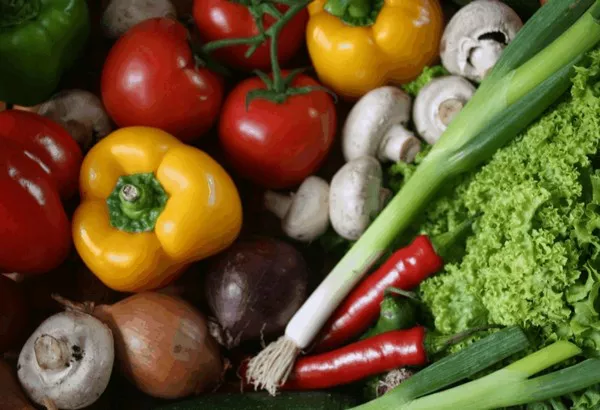Maintaining optimal cholesterol levels is paramount for heart health, and a well-balanced diet plays a pivotal role in achieving this. High cholesterol levels are a significant risk factor for cardiovascular diseases, making dietary choices crucial for those aiming to support heart health. In this comprehensive guide, we will explore the best foods for managing cholesterol levels and promoting cardiovascular well-being.
Understanding Cholesterol
Before delving into the specifics of a heart-healthy diet, it’s essential to understand cholesterol and its role in the body. Cholesterol is a waxy, fat-like substance present in every cell, playing a vital role in the production of hormones, vitamin D, and bile acids for digestion. However, when levels of certain types of cholesterol become elevated, particularly low-density lipoprotein (LDL) cholesterol, it can lead to the accumulation of plaque in the arteries, increasing the risk of heart disease.
Best Foods for Lowering LDL Cholesterol
Oats and Barley:
These whole grains are rich in beta-glucans, a type of soluble fiber known to help lower LDL cholesterol levels. Incorporating oatmeal, oat bran, or barley into your breakfast routine can be an excellent way to start the day on a heart-healthy note.
Fatty Fish:
Cold-water fish such as salmon, mackerel, trout, and sardines are abundant in omega-3 fatty acids. These fatty acids have been shown to reduce triglycerides and increase high-density lipoprotein (HDL) cholesterol, the “good” cholesterol that helps transport LDL cholesterol out of the bloodstream.
Nuts and Seeds:
Almonds, walnuts, flaxseeds, and chia seeds are packed with heart-healthy monounsaturated fats, polyunsaturated fats, and fiber. Regular consumption of these nuts and seeds has been associated with lower LDL cholesterol levels.
Fruits and Berries:
Apples, grapes, strawberries, and citrus fruits contain soluble fiber and antioxidants that contribute to lowering cholesterol. Berries, in particular, are rich in compounds that support heart health and may help regulate cholesterol levels.
Legumes:
Beans, lentils, and chickpeas are excellent sources of soluble fiber and plant-based protein. Including legumes in your diet can help lower LDL cholesterol and improve overall heart health.
Vegetables:
Dark, leafy greens such as spinach and kale, as well as cruciferous vegetables like broccoli and Brussels sprouts, are loaded with antioxidants and fiber. These vegetables can contribute to a heart-healthy diet and support cholesterol management.
The Role of Healthy Fats
Olive Oil:
Extra virgin olive oil is a staple of the Mediterranean diet, known for its heart-protective properties. Rich in monounsaturated fats, olive oil can help lower LDL cholesterol and reduce the risk of cardiovascular diseases.
Avocados:
Avocados are not only delicious but also a great source of monounsaturated fats. They can contribute to raising HDL cholesterol levels while lowering LDL cholesterol, making them a valuable addition to a heart-healthy diet.
Fatty Fish (Again):
The omega-3 fatty acids found in fatty fish deserve a second mention. These fats are not only beneficial for lowering LDL cholesterol but also for supporting overall heart health by reducing inflammation and maintaining proper blood vessel function.
Lifestyle Factors for Cholesterol Management
Regular Exercise:
Physical activity is a key component of a heart-healthy lifestyle. Regular exercise can help raise HDL cholesterol and lower LDL cholesterol. Aim for at least 150 minutes of moderate-intensity exercise per week.
Maintain a Healthy Weight:
Being overweight or obese can contribute to higher LDL cholesterol levels. Achieving and maintaining a healthy weight through a balanced diet and regular exercise is crucial for cholesterol management.
Limit Saturated and Trans Fats:
While healthy fats are essential, it’s equally important to limit the intake of saturated and trans fats. These fats, often found in processed and fried foods, can raise LDL cholesterol levels. Opt for healthier cooking oils and choose lean sources of protein.
Moderate Alcohol Consumption:
Moderate alcohol consumption may have a modest effect on increasing HDL cholesterol. However, excessive alcohol intake can lead to various health issues, so it’s crucial to consume alcohol in moderation.
Foods to Limit or Avoid
Processed and Fried Foods:
These often contain unhealthy trans fats and excessive saturated fats, contributing to elevated LDL cholesterol levels.
Red Meat:
While lean cuts of red meat can be included in moderation, it’s essential to limit the consumption of fatty cuts, as they can increase saturated fat intake.
Full-Fat Dairy Products:
Opt for low-fat or fat-free dairy options to reduce saturated fat intake. Choose skim milk, low-fat yogurt, and reduced-fat cheeses.
Sugary Foods and Beverages:
Excessive consumption of sugary foods and beverages may contribute to weight gain and an increased risk of heart disease. Limiting added sugars is crucial for overall heart health.
Conclusion
Maintaining healthy cholesterol levels is a fundamental aspect of cardiovascular well-being. By incorporating a variety of heart-healthy foods into your diet, emphasizing whole grains, fruits, vegetables, and sources of healthy fats, you can support your heart health and reduce the risk of cardiovascular diseases. Additionally, adopting a balanced lifestyle that includes regular exercise and maintaining a healthy weight complements dietary efforts in managing cholesterol effectively. As always, it’s advisable to consult with a healthcare professional for personalized guidance on cholesterol management based on individual health factors.


